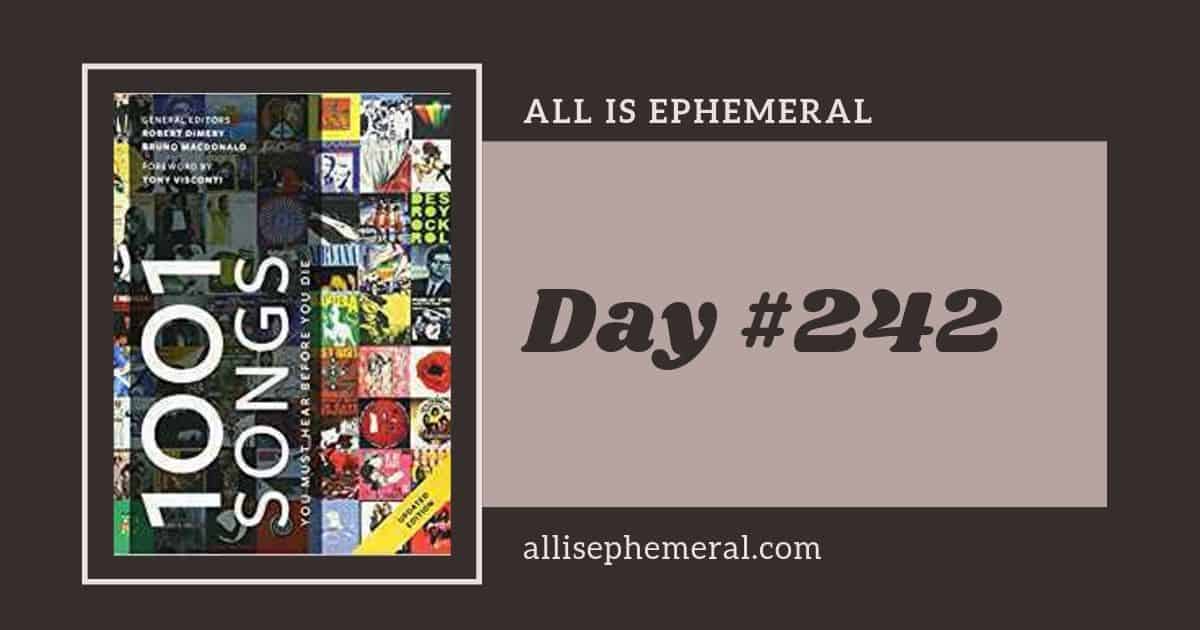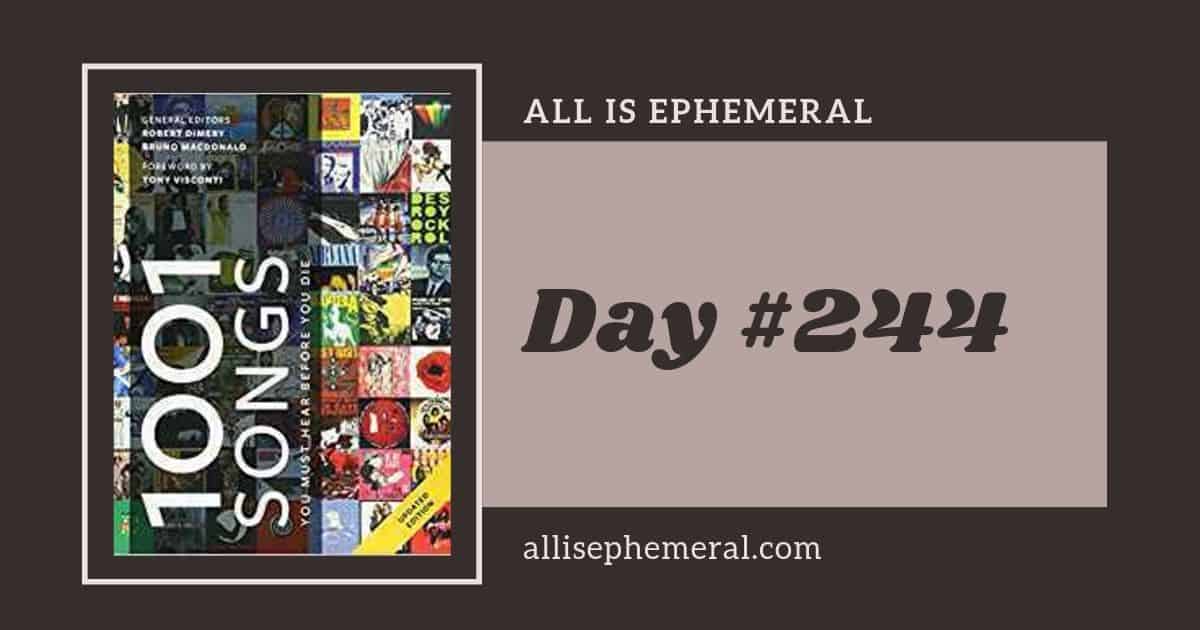
1001 Songs Challenge #243: See Emily Play (1967)
 On 11 February 2019 I set myself the challenging of reading 1001 Songs You Must Hear Before You Die by Robert Dimery (ed.) and following the book’s advice to the letter. I’ve previously read 1001 Films… and started 1001 Albums… but felt 1001 Songs… would be a sensible place to start for what I have in mind here.
On 11 February 2019 I set myself the challenging of reading 1001 Songs You Must Hear Before You Die by Robert Dimery (ed.) and following the book’s advice to the letter. I’ve previously read 1001 Films… and started 1001 Albums… but felt 1001 Songs… would be a sensible place to start for what I have in mind here.
My challenge is to read about one song per day and listen to it (YouTube and Spotify, I need you tonight!) before sharing my own thoughts. Some songs I will love, others I’ll hate, and I’m sure there will be those that leave me perplexed but listen to them I shall.
I’ll also try, and most likely fail, to pinpoint the best song from the 1001 on offer but I’m nothing if not foolhardy. Instead of one song, I’m predicting I’ll have about 100 favourites by the end and may have to resort to a Top 10 so far to maintain any semblance of sanity.
of one song, I’m predicting I’ll have about 100 favourites by the end and may have to resort to a Top 10 so far to maintain any semblance of sanity.
So long as I post everyday (including Christmas) then this challenge should come to an end on Wednesday 8 November 2021. Staying with the Barney Stinson theme I am hoping that the whole experience will prove to be…
Pink Floyd – See Emily Play (1967)
We’re staying in the UK today, dear reader, and our guests are a group that I am in the midst of discovering in their entirety. Today we have Pink Floyd, highly renowned in music circles to this day, and last month I started a pilgrimage through their fifteen albums, a challenge to listen to each in its entirety and take in Floyd’s entire discography. Anyway, I digress. Pink Floyd’s origins were a band formed in London by architect students – Roger Waters, Richard Wright and Nick Mason. They later recruited Waters’ childhood friend from Cambridge, Syd Barrett, who took leadership of the band and named them Pink Floyd. In 1967 their first single, penned by Barrett, Arnold Layne, was a Top 20 UK hit. Their second, See Emily Play, also a Barrett composition, did even better, so much so that 1001 Songs have selected it for our elite list.
See Emily Play has Barrett singing about a girl named Emily, a vision the singer allegedly saw after taking psychedelic drugs while wandering nearby woods. It has also been linked to Emily Young, who attended the UFO Club in London where Floyd once played and was dubbed “the psychedelic schoolgirl”. In the song, Barrett offers little snippets about Emily, that she prefers to steal the dreams of others, she weeps in dark woodland, and even floats on a river. Emily comes across as some otherworldly being in the song, pure psychedelia at its finest. As with other compositions I have heard from Barrett, this is intricate but absorbing to listen to.
psychedelic drugs while wandering nearby woods. It has also been linked to Emily Young, who attended the UFO Club in London where Floyd once played and was dubbed “the psychedelic schoolgirl”. In the song, Barrett offers little snippets about Emily, that she prefers to steal the dreams of others, she weeps in dark woodland, and even floats on a river. Emily comes across as some otherworldly being in the song, pure psychedelia at its finest. As with other compositions I have heard from Barrett, this is intricate but absorbing to listen to.
As with other Pink Floyd songs I have heard so far, See Emily Play sounds completely different to other music. Syd Barrett is ably supported by his bandmates to create the psychedelic sound, especially Richard Wright’s keyboard work. The song would send Pink Floyd into the UK Top 10, onto Top of the Pops, and their debut album, The Piper at the Gates of Dawn was also well-received. Sadly, Barrett had started to deteriorate mentally throughout the year, either due to excessive drug use, mental illness or perhaps a combination of the two. Being in the limelight only served to exacerbate the problems for him. By 1968 Barrett was out of Pink Floyd with school friend – David Gilmour – having been brought in at the end of 1967 to support Barrett but now to replace him. Pink Floyd would soldier on for the next five years, experimenting, slowly building their audience across six more albums. Their eighth album, 1973’s The Dark Side of the Moon, would turn Pink Floyd into megastars. In contrast, Syd Barrett would live a largely reclusive life, making occasional forays back to the studio in the hope of rediscovering the magic that was responsible for See Emily Play.
Favourite songs so far:
Ben E. King – Stand By Me (1961)
The Animals – House of the Rising Sun (1964)
Simon & Garfunkel – The Sounds of Silence (1965)
The Who – Substitute (1966)
The Rolling Stones – Paint It Black (1966)
The Beach Boys – God Only Knows (1966)
The Doors – The End (1967)
The Kinks – Waterloo Sunset (1967)
Aretha Franklin – Respect (1967)
The Beatles – A Day in the Life (1967)





